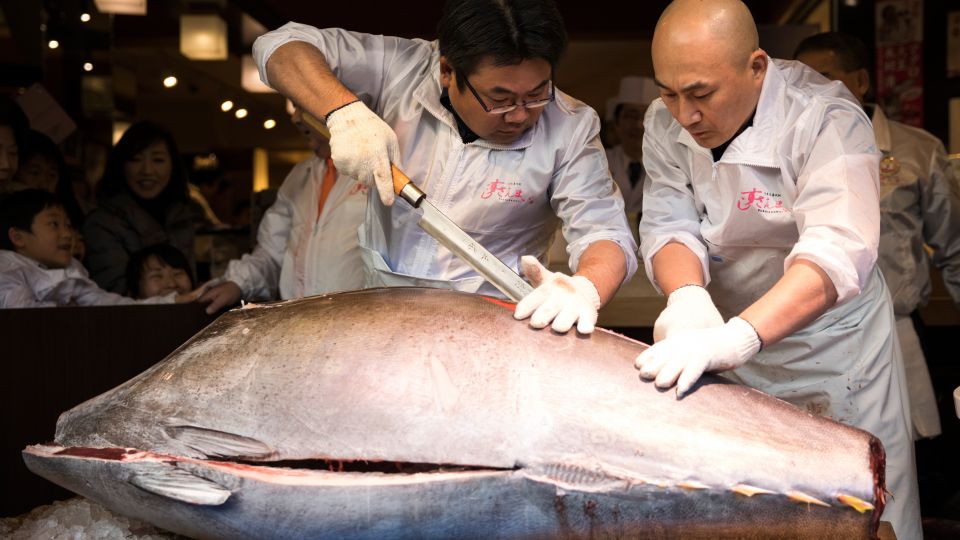March 19, 2018
The Fisheries Agency plans to reduce next season’s quota for small Pacific bluefin tuna that can be caught.
The Fisheries Agency plans to reduce next season’s quota for small Pacific bluefin tuna that can be caught off Hokkaido and Kagoshima Prefecture effectively to zero, and greatly reduce the quotas for Iwate and Kochi prefectures, as these prefectures have significantly exceeded their quotas for this season.
Japan has been criticized for not adhering to fishing quotas it promised internationally to uphold, so the agency is adopting a tough approach to prefectures that have been too lenient toward management of this resource.
Small Pacific bluefin tuna weigh less than 30 kilograms. The next season runs from July this year until June 2019.
The Western and Central Pacific Fisheries Commission decides on Pacific bluefin tuna quotas for each of its 26 member nations and regions, including Japan. Catching small tuna, which will lay eggs in the future, will have a significant impact on the future health of this resource.
Japan’s quota of small tuna for this season was set at 3,424 tons, which is less than 10 percent of the volume of bluefin tuna consumed in the nation. However, Japan has already exceeded 98 percent of this quota, making it extremely likely the nation will go over its limit for a second consecutive year.
Small bluefin tuna are caught by methods including fixed fishing nets that catch many kinds of fish and round haul nets used by fishing vessels targeting the tuna. The agency sets the quota for individual prefectures.
Hokkaido, where fixed nets caught many fish, netted 783 tons of small bluefin tuna this season, greatly eclipsing its quota of 112 tons. Kagoshima Prefecture had a quota of 8 tons but reeled in 24 tons.
From July, for prefectures that exceeded their quota this season, the agency will subtract the excess catch from their quota for the year. Consequently, Hokkaido and Kagoshima will effectively be allocated a quota of zero tons after their excess catch is subtracted from this season’s haul. Iwate and Kochi prefectures, which caught significantly more than their upper limit, will have smaller quotas next season.
However, because it will be difficult to completely avoid catching bluefin tuna in fixed fishing nets, all prefectures, including Hokkaido and Kagoshima, will be allowed to catch a few tons of the fish.
When a prefecture tops its quota, the agency calls on fishermen to release bluefin tuna caught in fixed nets and instructs vessels using round haul nets not to intentionally catch small tuna. Regulations will be tightened from July, and people who keep fishing even after the quota has been reached could be fined or imprisoned.
As things now stand, no penalties are imposed even if a quota is exceeded, so fishermen profit from catching more fish. According to a senior official of the Fisheries Agency, the stiffer regulations “will remove a sense of unfairness” between regions catching huge volumes of fish and regions working hard to manage this resource.
About 80 percent of the global bluefin tuna catch is consumed in Japan. If the nation continues to fail to abide by its fishing quota, there are concerns Japan may face heightened international criticism and have its quota cut in the future.
(This article originally appeared in the Yomiuri Shimbun)


